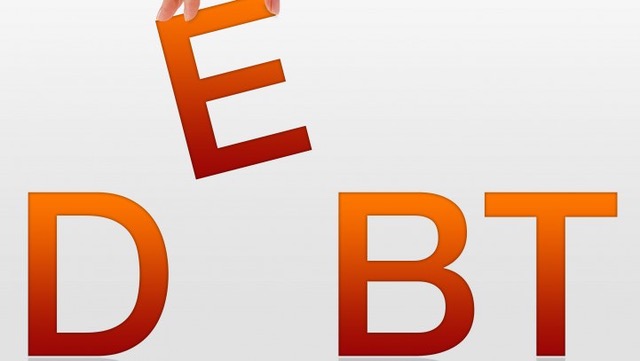When filing for bankruptcy the goal of a debtor is to obtain a fresh financial start. In Chapter 7 bankruptcy, their debts are eliminated, while in Chapter 13 bankruptcy, a debtor typically pays back their debt through a court ordered payment plan that is typically 60 months and is interest free for mist debt. However, depending upon the assets and income of the debtor, they may be able to pay back just a percentage of their debt and sometimes just a small percentage.
In most bankruptcy cases, the debt that is at issue is dischargeable and will not have to be paid by the debtor at the end of the bankruptcy process. However, as set forth in the bankruptcy code § 523, some debts are non-dischargeable.
Non-Dischargeable debts include:
- Tax liabilities incurred within the previous 3 years.
- Debts that were fraudulently incurred.
- Government fines and penalties.
- Alimony and court-ordered child support.
- Student loans (unless the debtor brings an adversary proceeding within their bankruptcy and is able to meet the “undue hardship” standard which is often difficult to do) and
- Personal injuries caused by operation of a motor vehicle while intoxicated.
Certain Debts Must be Challenged by a Creditor
The following debts may be declared non-dischargeable by a bankruptcy judge in a bankruptcy case if the creditor challenges your request to discharge them. For those debts to be deemed non-dischargeable, an aggrieved creditor must file an adversary proceeding and prove that the debt falls into one of these categories.
- Debts incurred based on fraud, including heavy recent use of credit with either none or a minimal amount of the debt paid back.
- Credit purchases of $800 or more for luxury goods or services made within 60 days of filing. (Such purchases are presumed non-dischargeable).
- Cash advances of $1,100 or more taken within 60 days of filing. (These cash advances are presumed non-dischargeable).
- Debts from willful or malicious injury to another person or another person’s property and
- Debts from embezzlement, larceny, or breach of trust.
Chapter 13 bankruptcy provides the ability to pay such non-dischargeable debts in a payment plan, however a debtor may still bring an adversary proceeding in a Chapter 13 bankruptcy to have the debt declared non-dischargeable. Additionally, while an unlisted debt in Chapter 7 bankruptcy may be discharged in a no asset case, if a debtor fails to list a debt and provide notice of their bankruptcy to a creditor, that unlisted debt will (not?) be discharged in a Chapter 13 bankruptcy or a Chapter 7 bankruptcy where an asset is administered.
Adversary Proceeding to Declare a Debt Non-Dischargeable
An adversary proceeding is a lawsuit filed in the Bankruptcy Court. As authorized by 11 U.S.C. § 523 and 727, there are generally three types of adversary proceedings a party may bring when seeking to declare a debt non-dischargeable. Additionally, there are three types of parties that may commence an adversary proceeding, a creditor, the bankruptcy trustee assigned to the case, or the U.S. trustee, who oversee the bankruptcy process for the Department of Justice. First is a lawsuit that challenges the dischargeability of a specific debt. This type of adversary proceeding keeps the rest of the bankruptcy intact and does not affect the dischargeability of the other debts listed in the petition. Second is a lawsuit that seeks to dismiss the entire bankruptcy case. Finally, a party may file an adversary proceeding, under certain circumstances, to deny the debtor a discharge in their bankruptcy. This type of adversary proceeding is particularly harsh because the bankruptcy estate would continue to be administered, meaning that the debtor loses their discharge, but creditors could still get a distribution of any non-exempt assets.
An adversary proceeding can be expensive for a creditor, and as set forth below, it may be challenging for a creditor to bring a successful adversary proceeding. As a result, these proceedings are not commonplace within the Bankruptcy Court. Nevertheless, in our experience, a creditor is generally more likely to bring an adversary proceeding when there is either (1) significant credit usage shortly before the filing of bankruptcy case and minimal payment back to that creditor has been made, or (2) we find often when there is personal animosity between a creditor and the debtor (typically when the creditor is either a family member, an ex-family member or a former personal friend of the debtor or had a business relationship).
The Elements of Fraud
When seeking to deny a discharge for fraud, there are generally four elements necessary to prove that fraud in an adversary proceeding:
- The debtor made a false representation of a material fact.
- The debtor had the intent to deceive when the false statement was made (this is often referred to as scienter.
- The creditor must have justifiably relied on the false information.
- The debtor caused injury by not repaying the debt.
The purpose of these explicit guidelines is to prevent a party from attempting to deny the debtor a discharge of its debt for a simple mistake on an application for a loan or credit. To further discourage frivolous challenges, debtors are empowered to ask the court to award attorney fees if the non-dischargeability proceeding was not substantially justified and if it would be considered unjust not to award such fees to the debtor.
The Presumption of Fraud for Recent Usage
Under the Bankruptcy Code, certain debts are presumptively fraudulent, making it very easy for a party to bring an adversary proceeding to challenge an individual debt under these circumstances. In these cases, the burden is reversed, and the debtor is required to prove that no fraud was involved.
- Credit card purchases for luxury goods owed to a single creditor and aggregating to more than $800 and incurred within 90 days of filing for bankruptcy and
- Cash advances aggregating to more than $1,100 obtained by debtor within 70 days of filing for bankruptcy.
To rebut the presumption, the debtor must prove that they intended to pay such debts back. Alternatively, in defending an adversary proceeding brought due to luxury credit card purchases, a debtor must prove that the goods at issue were not, in fact, luxury items. Absent some circumstances (e.g., an imminent foreclosure sale date or other important reasons), a debtor should not file a case during the either 70-day or 90-day period if their usage falls within the restrictions listed above.
Willful and Malicious Injuries
Finally, creditors to whom a debt is owed that stems from a willful and malicious injury (either to the creditor or to their property) may object to a debtor receiving a discharge of the debt owed to them. The injury must have been caused both willfully and maliciously. Both elements are necessary and must be proved for a creditor to successfully object to the discharge of a particular debt. A willful injury can be proved by showing that a debtor knew what they were doing and acted purposefully. An injury is malicious if it can be shown that the debtor knew that the act was likely to cause harm. Debts arising from the following types of actions have been proven to be willful and malicious in the federal bankruptcy courts in the districts of New York: assault, defamation, sexual harassment, bribery, or even running over a creditor with a car. These circumstances make it extremely difficult to discharge a judgment stemming from an intentional tort.
Contact The Law Offices of David I. Pankin, P.C.
If you have any questions about discharging debt in bankruptcy, please feel free to contact the Law Offices of David I. Pankin, P.C. at 888-529-9600. David. I Pankin, Esq. is a New York bankruptcy attorney that has helped over 15,000 clients obtain a bankruptcy discharge. David I. Pankin, P.C. provides a free initial consultation and has convenient office locations in Manhattan, Brooklyn, and Long Island. Remote consultations are available as well via zoom or by initial call. To schedule a free consultation, please call us at (888) 529-9600 or use our easy online contact form.






